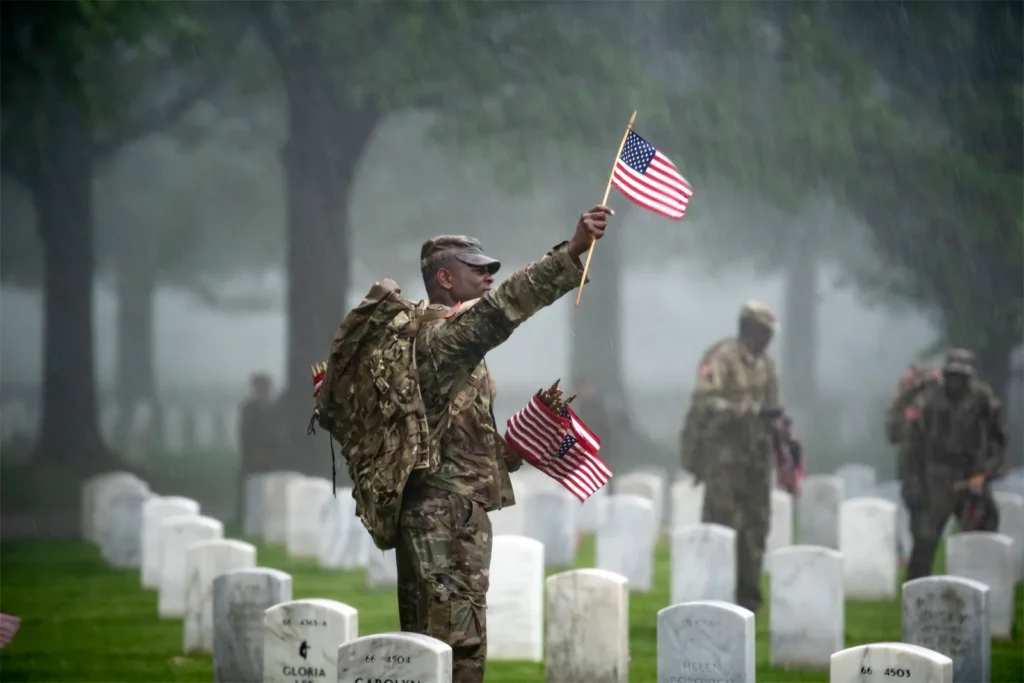Memorial Day in the United States is a deeply significant observance dedicated to honoring and remembering the men and women who have died in military service to the country. Celebrated on the last Monday of May each year, it marks the unofficial start of summer and is a poignant reminder of the sacrifices made by countless soldiers to secure the nation’s freedoms.
Origins and History
Memorial Day has its roots in the years following the American Civil War, initially known as Decoration Day. This day was set aside for people to decorate the graves of fallen soldiers with flowers, paying tribute to their sacrifice. The first widely recognized observance of Memorial Day was on May 30, 1868, initiated by General John A. Logan of the Grand Army of the Republic, an organization of Union veterans. Over time, the day was expanded to honor all American military personnel who died in all wars, not just the Civil War.
The choice of May 30 was significant because it wasn’t the anniversary of any particular battle, allowing it to honor all soldiers who died in service equally. In 1971, Memorial Day was declared a national holiday by an act of Congress, and its observance was moved to the last Monday in May to create a three-day weekend for federal employees, ensuring that the holiday would provide a time for reflection and commemoration.

Significance and Traditions
Honoring Fallen Heroes: At its core, Memorial Day is about remembrance. Across the country, ceremonies are held at cemeteries and memorials, where volunteers place American flags on graves. These acts of remembrance are a way for the nation to collectively honor the sacrifice of those who gave their lives in service to their country.
Parades and Events: Many communities host parades featuring military personnel, veterans, and patriotic music. These events serve as public expressions of gratitude and national pride. The parades often include local veterans’ organizations, military units, high school marching bands, and various civic groups, all coming together to honor the fallen.
Moment of Remembrance: At 3:00 PM local time, a National Moment of Remembrance is observed. This moment encourages Americans to pause and reflect on the sacrifices of the fallen, fostering a sense of national unity and collective memory.
Family and Community Activities: Families often gather for picnics, barbecues, and other outdoor activities. These gatherings blend the solemn remembrance with celebration, acknowledging the freedoms secured by those who served. Memorial Day weekend is also a popular time for sports events, concerts, and other leisure activities, emphasizing both reflection and enjoyment of the freedoms preserved by those honored.
Reflection
Memorial Day resonates deeply with many Americans, particularly those with connections to military service. It serves as a reminder of the bravery and selflessness that have shaped the nation’s history. The stories of valor, whether from the World Wars or more recent conflicts, are woven into the fabric of Memorial Day, making it a day of both solemn reflection and communal bonding.
In the broader context of global observances, Memorial Day stands out for its dual nature—honoring the past while celebrating the freedoms of the present. It’s a powerful example of how a nation remembers its heroes, fostering a sense of unity and shared purpose. The day underscores the importance of remembering the sacrifices made for the country’s freedoms and values, and it reinforces the ongoing commitment to honor those who serve.